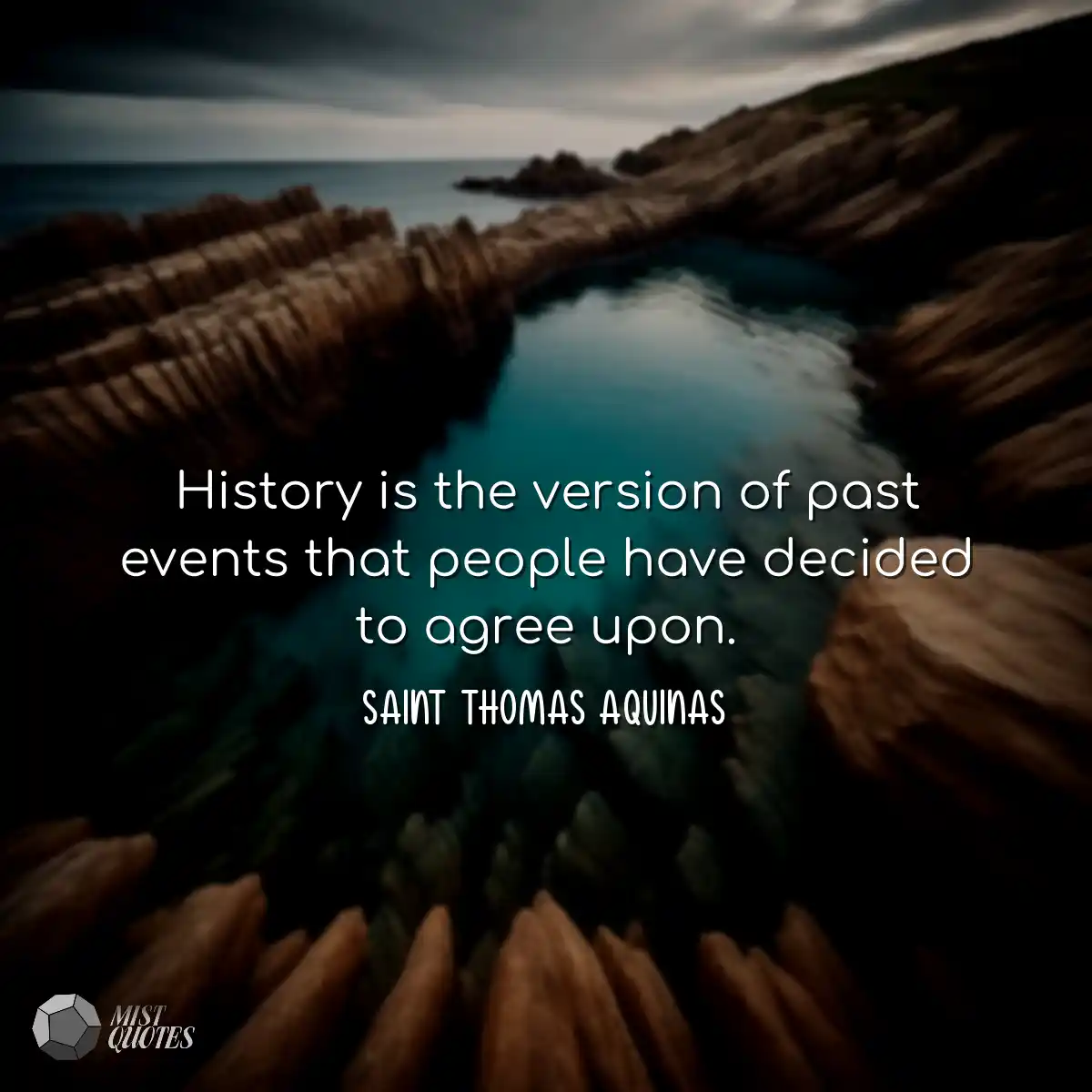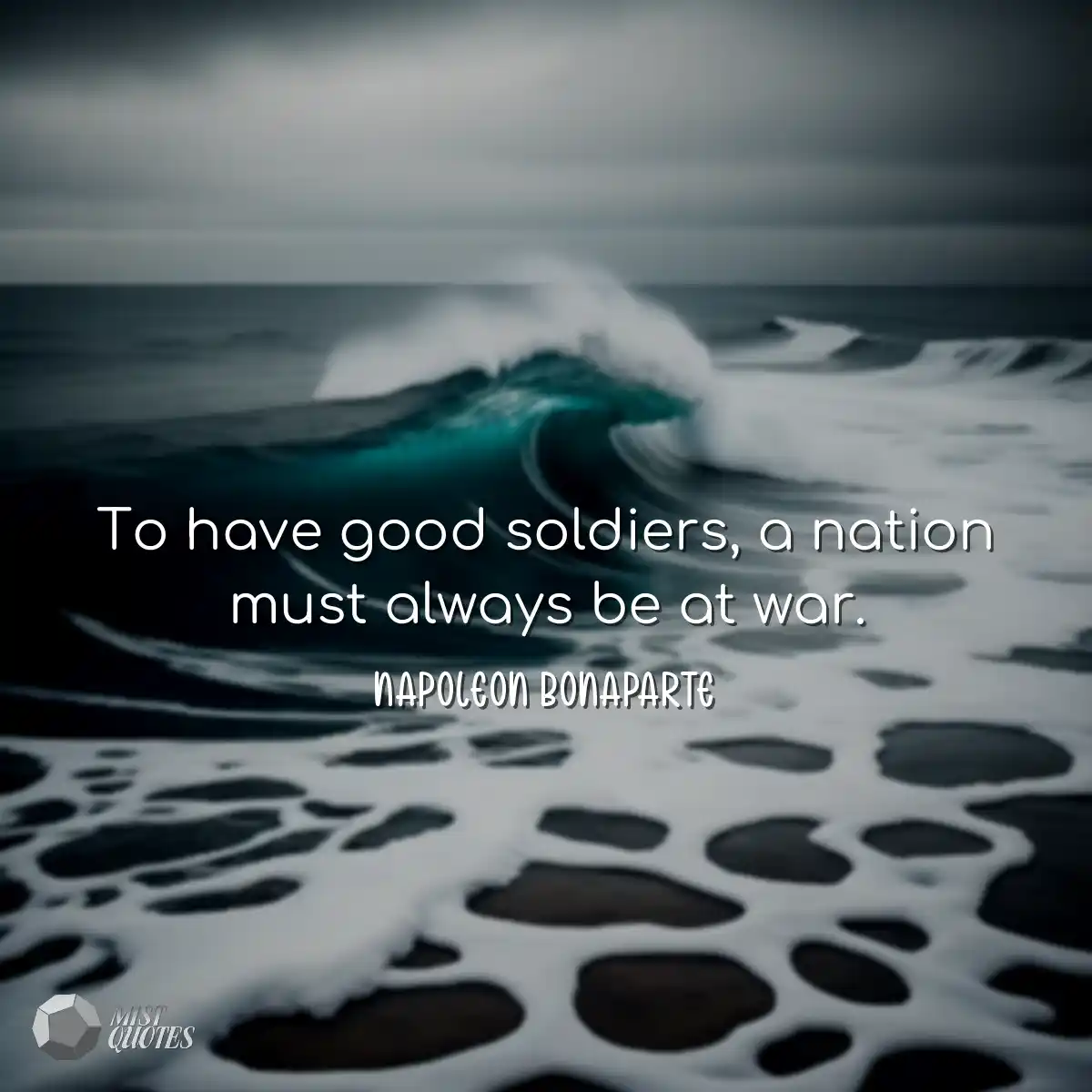
Napoleon Bonaparte
Politician, Military leader

Courage isn't having the strength to go on—it is going on when you don't have strength.

Victory belongs to the most persevering.

History is the version of past events that people have decided to agree upon.

Impossible is a word to be found only in the dictionary of fools.

In war, the moral is to the physical as three is to one.

The battlefield is a scene of constant chaos. The winner will be the one who controls that chaos, both his own and the enemy's.

The strong man is the one who is able to intercept at will the communication between the senses and the mind.

To have good soldiers, a nation must always be at war.

Victory is not always winning the battle...but rising every time you fall.

The battlefield is where the true character of a man is revealed.
Napoleon's military career began during the French Revolution, where he rapidly ascended through the ranks due to his strategic brilliance and leadership skills. His first major success came in 1796 with the Italian Campaign, where he defeated Austrian and Italian forces, earning him acclaim as a military prodigy. The Battle of Austerlitz in 1805 showcased Napoleon's ability to outmaneuver larger armies, solidifying his reputation as a master tactician.
The year 1806 marked another triumph for Napoleon with the decisive Battle of Jena-Auerstedt against the Prussian and Russian armies. His innovative use of combined arms, rapid movements, and understanding of battlefield dynamics earned him widespread admiration. The subsequent years saw the Napoleonic Code, a legal system that reflected Enlightenment ideals, implemented in the territories he conquered, solidifying his influence beyond the military sphere.
In 1804, Napoleon crowned himself Emperor of the French, symbolizing a shift from revolutionary chaos to stable governance. His political reforms aimed to consolidate power and streamline administration. The Napoleonic Code, implemented in 1804, established a uniform legal system, promoting equality before the law and individual rights. Furthermore, Napoleon centralized authority, ensuring a more efficient and responsive government.
The Napoleonic Empire expanded rapidly, reaching its zenith in 1812 with control over most of continental Europe. However, the ambitious invasion of Russia proved disastrous, leading to the decline of Napoleon's power. Despite facing defeat and exile to the island of Elba in 1814, he made a dramatic return to France in 1815, known as the Hundred Days. The Battle of Waterloo in June 1815 ultimately led to his final defeat, and Napoleon was exiled to the remote island of Saint Helena.
Napoleon's legacy is a complex tapestry of military glory, administrative reforms, and controversy. His military strategies and tactics continue to be studied in military academies worldwide, influencing generations of military leaders. The Napoleonic Code laid the foundation for modern legal systems, emphasizing principles of equality and civil liberties.
While Napoleon's imperial ambitions and military conquests sparked upheaval in Europe, his vision of a unified and reformed continent left an enduring impact. His ability to blend military might with political insight remains a subject of fascination and debate, making Napoleon Bonaparte a pivotal figure in the annals of world history.
Recent Quotes
"To help a friend in need is easy, but to give him your time is not always opportune."
Charlie Chaplin
"Life can be wonderful if you're not afraid of it. All it takes is courage, imagination… and a little dough."
Charlie Chaplin
